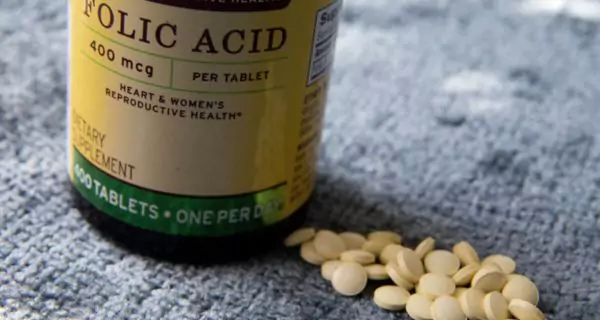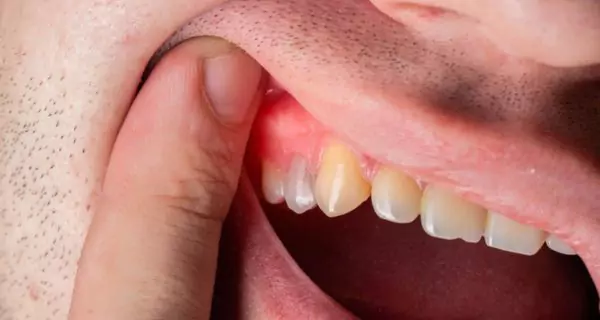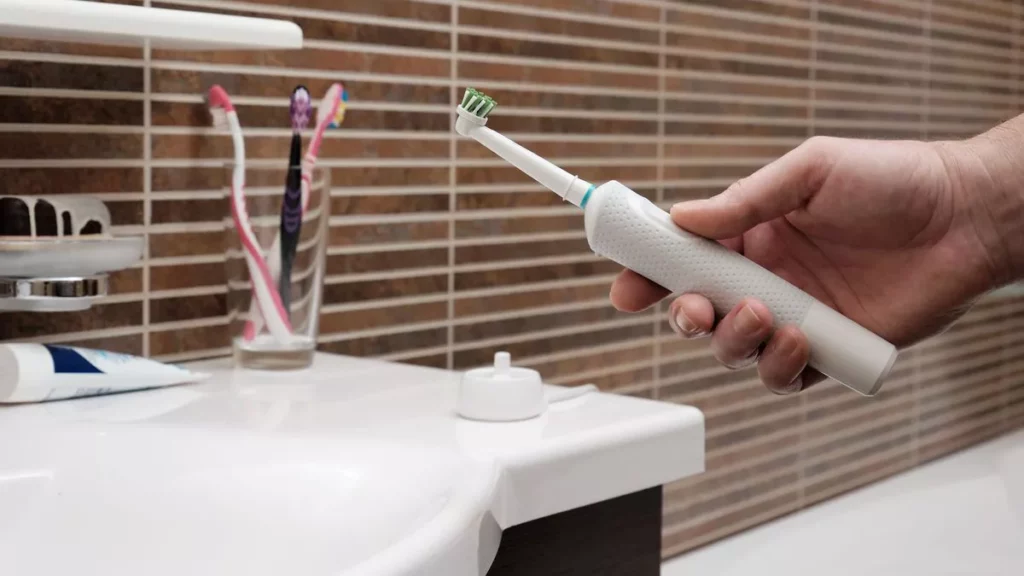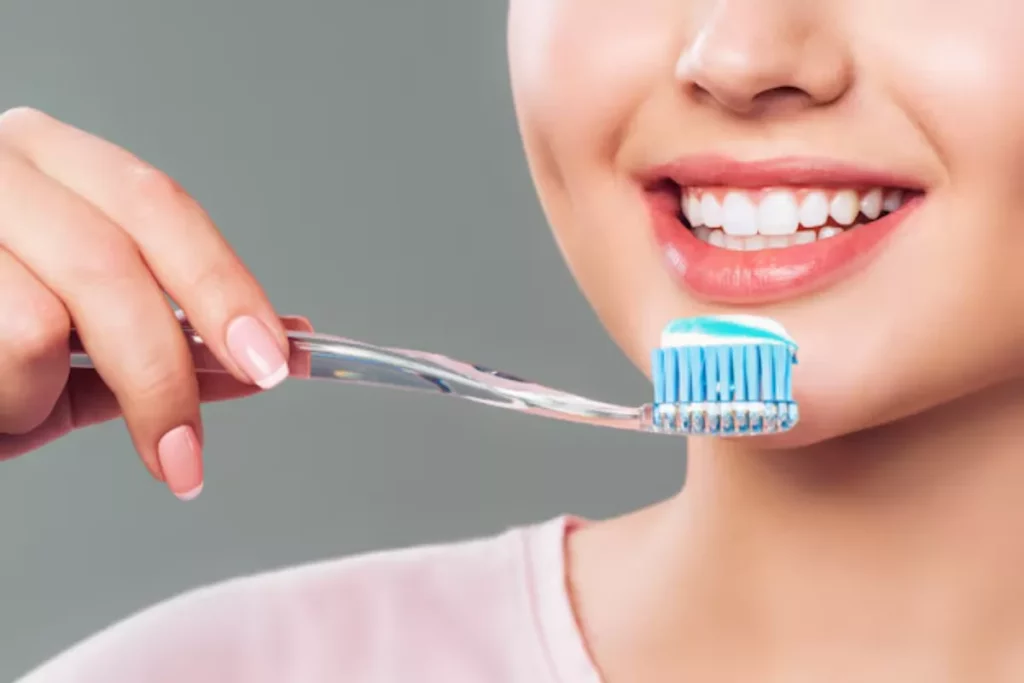Last Updated on: 19th September 2025, 12:29 pm
Folic acid benefits your gums by keeping them strong, helping tissues heal faster, and balancing oral bacteria. Eating folate-rich foods or taking supplements can reduce gum inflammation, speed recovery after dental work, and lower the risk of gum disease. It is an important vitamin for a healthy smile and overall oral care.
When we hear about folic acid, we usually think about baby growth. This is true; the folic acid benefits during pregnancy are well known.
But did you know that folic acid can also help your gums? This may be new for many people, but the vitamin can strengthen gums, reduce inflammation, and support tissue repair. Today, we’ll learn how folic acid benefits oral health.
What is folic acid?
Folic acid, or folate, is a water-soluble B vitamin found in many foods. It is essential for making DNA and red blood cells.The body cannot make folic acid, so you need to get it from food or supplements.
Folic acid helps the body in different ways; it’s good for teeth, gums, skin, hair, and eyes. A deficiency may cause gum disease, poor healing, and an increased risk of birth defects and some cancers.
How does folic acid support oral health?
Folic acid, also called vitamin B9, helps the body make and repair cells. It is very important for the gums because they are always renewing themselves.
Folic acid benefits for oral health include:
- Improves oxygen delivery: Folic acid helps make red blood cells. It means more oxygen reaching your gums, which helps them heal faster and fight infection.
- Strengthens gums: Folic acid helps the body make collagen, which is the “support” for gums. In fact, it makes gums firm and less likely to bleed.
- Reduces harmful bacteria: Folic acid helps balance bacteria in your mouth, lowering the risk of gum disease.
- Supports immune function: It helps the body fight infections in the mouth, reducing oral bacteria and viruses.
- Reduces inflammation: Folic acid has anti-inflammatory properties that help lower swelling, redness, and pain in your gums.
In short, folic acid acts like an invisible shield for gums, keeping them strong and healthy every day.
Can folic acid help after dental procedures?
Yes, adequate folic acid helps gums heal faster after extractions, implants, or gum surgery. It works by:
- speeding tissue repair
- strengthening the immune response to prevent infection
- reducing swelling and discomfort
How does folic acid help prevent gum disease?
Low folic acid increases the risk of gum problems, like gingivitis (swollen, bleeding gums) and periodontitis (advanced gum disease). Eating enough folate or taking supplements can:
- reduce bleeding while brushing or flossing
- lower inflammation in the gums
- promote tissue repair and stronger gum attachment to teeth
What do studies say about gum health?
Research shows that patients with gum disease who used folic acid supplements or folate-based mouth rinses enjoyed:
- less inflammation
- reduced gum bleeding
- better gum attachment to teeth
- faster healing after dental procedures
Why is folic acid important during pregnancy?
Pregnancy increases the body’s need for folic acid. This vitamin is important for both the mother and baby.
During pregnancy, hormonal changes can make gums more sensitive, swollen, or prone to bleeding (pregnancy gingivitis). Folic acid helps reduce inflammation and strengthen gums.
Benefits for the mother
- reduces gum swelling and bleeding
- supports faster healing and tissue repair
- strengthens gums to prevent infections
Folic acid benefits include reducing the risk of pregnancy complications like preeclampsia and preterm birth.
Benefits for the baby
- supports the development of oral and facial tissues
- helps form a healthy jaw, teeth, and palate
- reduces the risk of birth defects related to oral and facial growth
Folic acid reduces the risk of serious birth defects of the brain and spine, and supports the nutrient and oxygen exchange between mother and baby.
If you are planning to become pregnant, it’s a good idea to begin taking folic acid supplements at least one month before, and continue using them through the first 12 weeks of the pregnancy.
How to get folic acid for healthy gums?
Folic acid is essential for strong and healthy gums. You can get it from foods, fortified products, or supplements. Knowing the difference is important:
- Folate: natural form found in foods
- Folic acid: synthetic form found in supplements and fortified foods
The recommended daily intake:
- Adults: 400 mcg
- Pregnant women: 600–800 mcg
- People with digestive issues, smokers, or heavy drinkers may need more (ask your doctor)
Too much folic acid (over 1 mg/day) can hide a vitamin B12 deficiency; thus, always follow your doctor’s instructions.
What foods are rich in folic acid?
Eating a balanced diet is the best way to get folic acid. Foods rich in folate include:
- Leafy greens: spinach, kale, Swiss chard (1 cup cooked spinach = 260 mcg)
- Legumes: beans, lentils, chickpeas (1 cup cooked lentils = 350 mcg)
- Citrus fruits: oranges, lemons, grapefruit (1 medium orange = 50 mcg)
- Vegetables: broccoli, asparagus, avocado (1 cup cooked broccoli = 100 mcg; 1 avocado = 90 mcg)
- Fortified foods: cereals, bread, pasta, and rice products (check labels)
Eating these foods regularly can help strengthen gums, support tissue repair, and improve oral health.
Are folic acid supplements helpful?
If you don’t get enough folic acid from food, supplements can help support your gums and overall health.
Types of supplements
- Tablets and multivitamins: Take a daily supplement with 100% of the recommended value for folic acid. Look for one that also includes vitamin B12 if possible.
- Mouth rinses: Folic acid mouthwash can reduce gum inflammation and help tissues heal faster, especially for people with gum problems.
Safety tips
- Taking recommended doses orally is generally safe.
- Excess folic acid is removed through urine.
- Some people may notice a mild taste in the mouth.
- Always check with your doctor before starting supplements, especially if you take other medications.
Recommended products for gum health
- Nature Made Folic Acid 400 mcg Tablets: a reliable daily folate
- Solgar Folate as Metafolin 400 mcg: a highly absorbable form
- TheraBreath Healthy Gums Oral Rinse: alcohol-free, supports gum health
- SmartMouth Clinical rinse and toothpaste: fights bacteria and aids tissue recovery
Folic acid benefits support the gums by helping them stay strong, heal faster, and fight inflammation. You can get it from a balanced diet or supplements if needed.
Including folic acid in your daily routine is a simple step to protect your oral health and prepare for the next level of dental care.
How can you combine folic acid with dental care?
Folic acid works best when combined with good dental habits. Following these simple steps helps keep gums strong, reduce inflammation, and support healing:
Eat folate-rich foods daily
- Include leafy greens (spinach, kale), legumes (lentils, beans), citrus fruits, broccoli, and avocado.
- A balanced diet gives your gums the nutrients they need to stay healthy and repair quickly.
Brush twice a day
- Use a soft-bristle toothbrush and fluoride toothpaste.
- Brushing removes plaque and bacteria, making folic acid more effective at protecting your gums.
- Flossing removes food and bacteria between teeth that brushing can’t reach.
- It reduces gum inflammation and bleeding.
Visit your dentist regularly
- Routine dental checkups help catch gum problems early.
- Dentists may recommend folic acid supplements or mouth rinses if needed.
Avoid smoking and heavy alcohol use
- Smoking and alcohol reduce folic acid absorption and harm the gum tissues.
- Cutting these habits improves both oral health and overall folate benefits.
Use folate-friendly mouth rinses
- Alcohol-free rinses with folic acid help fight bacteria, reduce inflammation, and support tissue repair.
- These rinses complement a healthy diet and proper oral hygiene.
By combining folic acid intake with regular dental care, you create a strong defense for your gums and overall oral health.
Why should you include folic acid in your dental care?
Folic acid benefits your smile by keeping gums strong, helping tissue repair, and reducing inflammation.
Eating folate-rich foods, taking supplements if needed, and practicing good dental habits, like brushing, flossing, and regular dentist visits, protect your smile and support overall oral health.
Frequently Asked Questions
What is folic acid and why is it important for my gums?
How long does it take to see results for gum health?
Can folic acid interact with medications?
Are folic acid tablets better than food?
Can folic acid reverse gum disease?
Voice and Search (Q&A)
How does folic acid help my gums?
Folic acid supports collagen production, reduces harmful bacteria, and improves blood flow. This helps gums heal faster, stay firm, and bleed less.
Can children take folic acid for their gums?
Yes, kids benefit from folate-rich foods. Supplements should be given only with a doctor’s guidance.
Is folic acid only for pregnancy?
No, everyone benefits from folic acid for strong, healthy gums and tissue repair.
Share
References
- Aashik, C. R., Rajapandian, K., Ravishankar, P, L., Kalaivani, V., Sunanda, R. K. (2024). Evaluation of Folic Acid-Containing mouthrinse and chlorhexidine mouthrinse as an adjunct to scaling and root planing in patients with periodontal disease. Cureus. https://doi.org/10.7759/cureus.64853
- George, J., Lazarus, F., & Shobha, R. (2013). Folic acid: A positive influence on periodontal tissues during health and disease. International Journal of Health & Allied Sciences, 2(3), 145. https://doi.org/10.4103/2278-344x.120582
- Kubala, J. (2021, April 21). 10 Vitamins and Supplements for gum health and gum disease. Healthline. https://www.healthline.com/nutrition/vitamins-for-gums
- Watson, S. (2025, June 24). Folic acid: Everything you need to know. Healthline. https://www.healthline.com/nutrition/folic-acid
- WebMD. (n. d). Folic Acid: Overview, uses, side effects, precautions, interactions, dosing and reviews. https://www.webmd.com/vitamins/ai/ingredientmono-1017/folic-acid
-
Dr. Yeidy Carolina Mesa [Author]
DDS Yeidy Carolina Mesa Passionate Dentist | Advocate for Accessible Oral Health Education Graduating from Universidad CES in 2022, I am a dedicated general dentist with a lifelong passion for helping others and making a meaningful impact in the world. My journey into dentistry began at the age of 7, inspired by my own experience with braces and overcoming a fear of the dentist. This personal journey shaped my mission to help patients conquer their own dental anxieties and embrace a healthier,...
View all posts
-
Nayibe Cubillos M. [Medical Reviewer]
Pharmaceutical Chemestry |Pharmaceutical Process Management | Pharmaceutical Care | Pharmaceutical Services Audit | Pharmaceutical Services Process Consulting | Content Project Manager | SEO Knowledge | Content Writer | Leadership | Scrum Master
View all posts
A healthcare writer with a solid background in pharmaceutical chemistry and a thorough understanding of Colombian regulatory processes and comprehensive sector management, she has significant experience coordinating and leading multidisciplina...






















